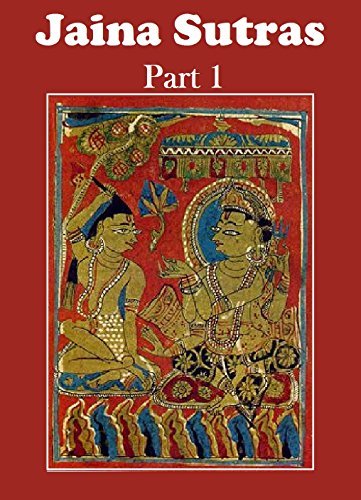Acaranga-sutra
by Hermann Jacobi | 1884 | 71,211 words | ISBN-10: 8120801237 | ISBN-13: 9788120801233
The English translation of the Acaranga Sutra, which represents the first the 12 Angas in Shevatambara Jainism. It is traditionally dated to the 5th-century BCE and consists of two parts containing lectures based on the teachings of Mahavira. Topics include: lifestyle of an ascetic: conduct, behavior, collecting alms, clothes, mode of walking and ...
Lecture 6, Lesson 2
Though some know the misery of the world, have relinquished their former connections, have given up ease, live in chastity, and, whether monk or layman, thoroughly understand the law, they are not able (to persevere in a religious life). The ill-disposed, giving up the robe, alms-bowl, blanket, and broom, do not bear the continuous hardships that are difficult to bear. He who prefers pleasures will, now or after an hour[1], be deprived (of the body[2], not to recover it) for an infinite space of time. And thus they do not cross (the saṃsāra), for the sake of these pleasures which entail evil consequences and are associated with others of their kind. (1)
But some who embrace the law, will practise it, being careful about its outward signs; not giving way to worldliness, but being firm. Knowing (and renouncing) all lust, a devout man becomes a great sage when he breaks all bonds, thinking: Nothing belongs to me. A man who, thinking, I am I[3], exerts himself for this (creed), ceases (to act), is houseless, walks about bald-headed. The naked, fasting (monk), who combats the flesh, will be abused, or struck, or hurt[4]; he will be upbraided with his former trade, or reviled with untrue reproaches. Accounting (for this treatment) by his former sins, knowing pleasant and unpleasant occurrences, he should patiently wander about. Quitting all worldliness[5] one should bear all (disagreeable) feelings, being possessed of the right view[6]. (2)
Those are called naked, who in this world, never returning (to a worldly state), (follow) my religion according to the commandment. This highest doctrine has here been declared for men. Delighted with this, destroying that (i.e. the effect of works), he will successively[7] give up sinfulness[8], after having come to a knowledge of it. Here (in our religion) some live as single mendicants. Therefore a wise man should lead the life of an ascetic by collecting pure alms or any alms in all sorts of families. ‘If (the food) be of good or bad smell, or if dreadful beasts inflict pain on (other) beings’-all that happens to you, you will firmly bear it. Thus I say. (3)
Footnotes and references:
[1]:
I.e. after a short time.
[2]:
The body with five organs, in which alone liberation can be realised.
[3]:
I have nothing to do with anybody else.
[4]:
Lūsie. The commentator translates it by lunkita, to tear out the hair. This would be a rather difficult operation on the bald head of a Jaina monk. Lūsiya is, of course, the Sanskrit lūṣita, hurt.
[6]:
Samiyadaṃsaṇe. The commentator explains it by samitadarśana. I think it corresponds to samyagdarśana.
[8]:
Ādāṇijjaṃ = ādānīya. It means usually faith; but I have here translated it according to the commentary.
